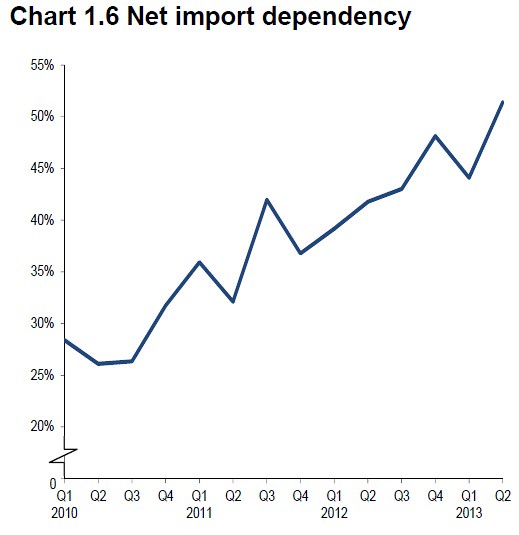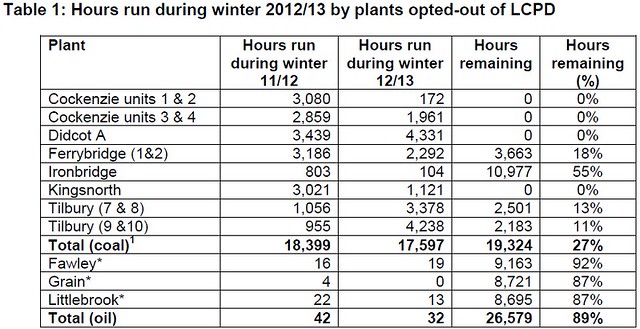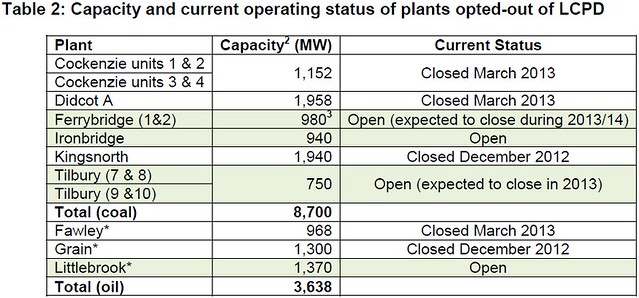The latest DECC Energy Trends was published today, and it's no surprise that the decline in indigenous energy production has continued. The killer statistic is:
In the second quarter of 2013 net import dependency rose to 51.4 per cent, up 9.6 percentage points from the second quarter of 2012.The chart on page 10 tells the story:
Coal: Production was down 24.3% on a year ago, and the proportion of our coal that came from imports rose from 81.7% to 93%. These imports came mostly from Russia (nearly half of the total!), USA and Columbia.
Oil: Production was down 13.4% on a year ago, and the proportion of our oil and oil products that came from imports rose from 40.5% to 45.1%. On a related note, the closure of the Coryton refinery resulted in a 5.6% drop in production of fuels from oil.
Gas: Production was down 2.8% on a year ago, and the proportion of our gas that came from imports rose from 43.6% to 52.5%. These imports came mostly from Norway, Qatar and the Netherlands.
Electricity: Production from nuclear power fell 16.5% due to several outages, but wind and PV generation rose by 58.6% (due to increased capacity), and hydro generation rose by 29% (due to higher rainfall). We imported 4.4% of our electricity.
Renewables
The key points here are:
- Share of electricity supply up from 9.7% to 15.5%, due to increased capacity for wind and PV and increased rainfall to power hydro stations. There was also more generation from power stations converted to biomass, although co-firing with coal has reduced.
- There's now 1,918 MW of capacity on a feed-in-tariff, 127 MW of which joined during Q2 2013.
- Total renewable capacity in the UK was 19.5 GW, compared to 14.2 GW a year ago.
Large Combustion Plant Directive
There's a helpful table (page 72) that shows how many of the coal power stations that were running over winter 2012/13 won't be running this winter. It's for reasons like this that Ed Miliband's promise to freeze energy prices seems a bit foolhardy.
The status of the plants that opted out is given in another table:
This shows that there's 5,050 MW of coal plant that ran last winter and won't be running this winter, and another 2,268 MW of oil plant that has shut - this didn't run much last winter, but when it did run it was urgently needed... On top of this there's another 1,730 MW of coal plant that is currently open but will close at some point during this winter. DECC also notes that:
From 1st January 2016 the remaining large combustion plants will be subject to more stringent emissions controls outlined in the Industrial Emissions Directive (IED). Plants that chose to opt-out of this directive will be limited to 17,500 hours between 2016 and 2023.So there's more shutdowns to come!
Mike Click here to read the rest of this post.


